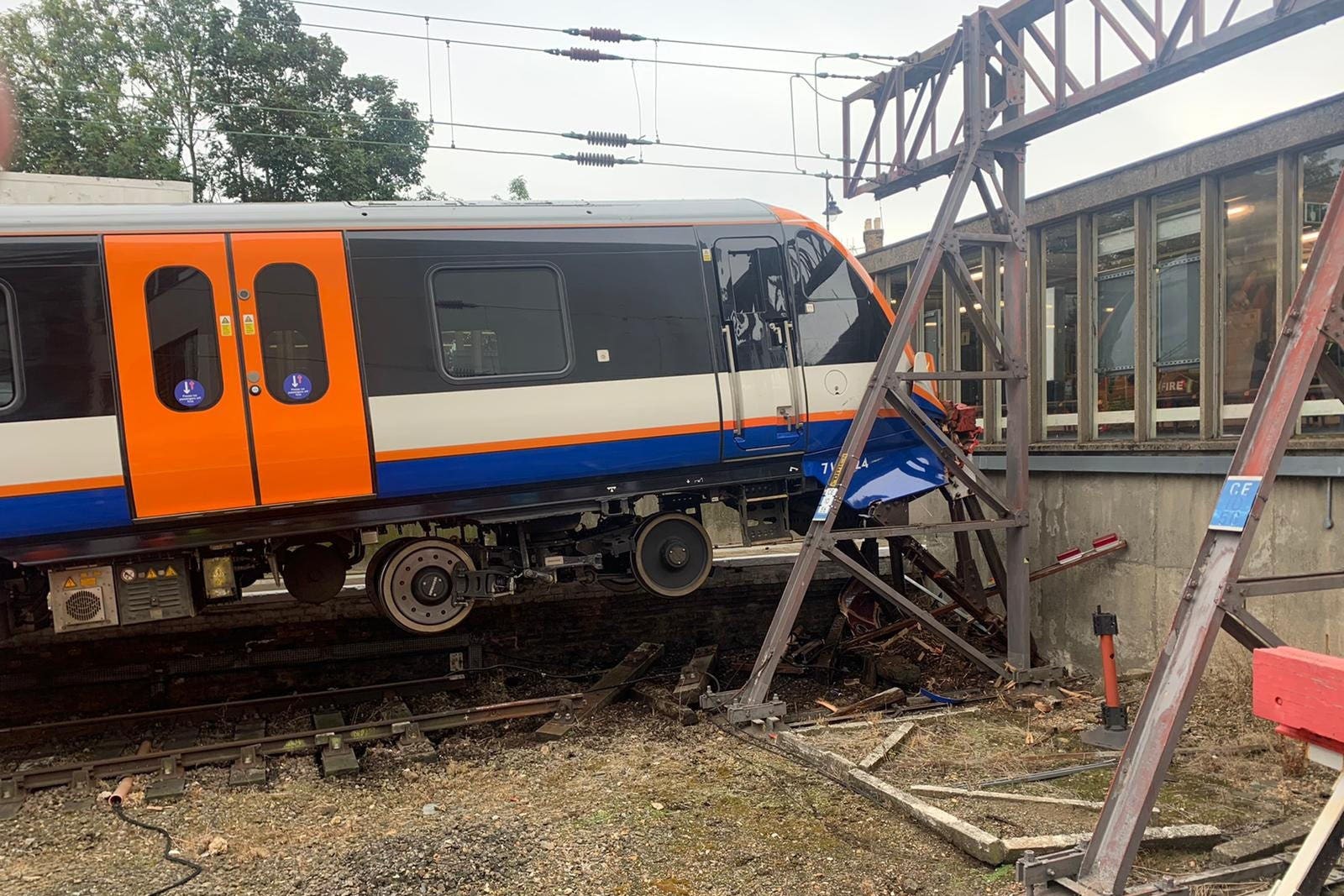Driver ‘tested positive for cocaine’ after crashing train through station buffers
An investigation into the incident in October last year stated the driver did not brake early enough due to ‘losing awareness of the driving task’.

The driver of a train which crashed through buffers at a station tested positive for cocaine, investigators said.
Around 75 passengers were on board the London Overground train when the accident happened at Enfield Town station, north London, on October 12 2021, according to a report by the Rail Accident Investigation Branch (RAIB).
The inquiry stated that the train was travelling at 10mph when it was 69 metres from the buffer stop.
After “briefly” applying the brakes, the driver – who was not named – took no further action for seven seconds until making an emergency brake application which occurred too late to prevent the collision, the RAIB said.
The report stated that the driver did not brake early enough due to “losing awareness of the driving task”.
It said: “The loss of awareness was probably a result of him being significantly fatigued at the time.
“Post-accident drug and alcohol tests of the driver also yielded a positive result for a recreational drug.”
A toxicology expert concluded it was likely the driver had taken cocaine within one or two days before the accident, and found evidence of “historical use” of the drug.
The man had been driving London Overground trains for 13 years.
He was involved in three previous safety incidents, including one when a train stopped short of a platform and the doors opened.
The driver told investigators examining the Enfield Town accident that he was tired before starting his shift due to a lack of sleep.
We have a zero-tolerance policy for drugs and alcohol, which exceeds industry standards, and the driver involved was immediately suspended following the incident and subsequently dismissed after returning a positive test result
After hitting the buffer stop, the train rode up on it, coming to rest 80cm above the rails and just short of the ticket hall.
No-one was seriously injured. One passenger had a minor leg injury and another suffered shock. Neither required hospital treatment.
Enfield Town is at the end of a line connected to Liverpool Street, making it popular with commuters who work in the City of London.
London Overground services are operated by Arriva Rail London (ARL), which employed the driver.
While our robust fatigue and lifestyle management procedures have always met industry standards, we recognise the recommendations made by RAIB and have already made enhancements
The RAIB recommended that ARL encouraged staff to report fatigue that could affect their ability to do their jobs safely, and urged Network Rail to improve risk assessment processes for collisions with buffers.
ARL managing director Paul Hutchings said: “We take the safety of our customers and colleagues incredibly seriously and provided every assistance to the Rail Accident Investigation Branch during its investigation.
“We have a zero-tolerance policy for drugs and alcohol, which exceeds industry standards, and the driver involved was immediately suspended following the incident and subsequently dismissed after returning a positive test result.
“While our robust fatigue and lifestyle management procedures have always met industry standards, we recognise the recommendations made by RAIB and have already made enhancements.”
Bookmark popover
Removed from bookmarks